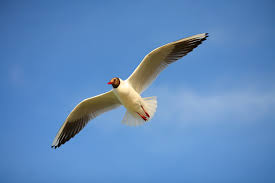[contextly_auto_sidebar id=”y731Zt4Em3IDVP8gSeOPtKgfgPFgo9aa”]
A piano student speaks to her audience, for the first time, and is absolutely thrilled.
I’m going to do something that may seem like blowing my horn, reprinting praise for myself from a reader. And from a reader who, with other students in a course she was taking, was assigned to read me. Which is kind of double praise — first my writing is assigned to a class, and then one of the students writes me in gratitude.
Of course, being human, I like to know that my work means so much to someone. But in this case, my delight goes further. You’ll see, as you read what I’m about to quote, that Donna Lee — a DMA student in piano at the Cleveland Institute of Music — had a new world open for her, when, inspired by things I’ve written, she decided to talk to her audience.
 Talking to the audience, in the larger classical music world, isn’t new. But it was new to Donna. And you’ll see how thrilled she was after she did it. Which is just another example of how classical music is changing, and of how the changes keep moving through our field.
Talking to the audience, in the larger classical music world, isn’t new. But it was new to Donna. And you’ll see how thrilled she was after she did it. Which is just another example of how classical music is changing, and of how the changes keep moving through our field.
And, above all, how the changes aren’t just adaptations we’re forced to make for survival. They mean a genuine rebirth for classical music, an explosion of art, commitment, and joy.
Here’s what Donna emailed me (quoted of course with her permission):
Dear Mr. Sandow,
My name is Donna Lee, and I am currently a doctoral student in Piano Performance at the Cleveland Institute of Music. In our DMA Seminar, we were given many of your readings about the contemporary state of classical music. Your ability to speak directly to your audience and engage in topics that are relevant and relatable made this reading assignment quite enjoyable. More importantly, as a musician myself, it made me reevaluate my own mission as an artist, and how I can connect with my audience in a culture that is moving further away from classical music.
Like most musicians, I have been playing most of my life with the traditions and rituals of the past. As a classical musician, we honor and respect the history and the performance practices that come with this incredible music. After reading your articles, I was taken aback and reassessed how I connect not only with the music, but how I connect with the audience. Just this past week, I had a performance at my former university. It was a noon hour concert which was for retired professors of literature and the arts. Usually, a presenter would introduce me, and I would politely bow and go on about my program. But this time, I had this incredible urge to address my audience and spoke to them on my ideas and interpretation about the program. The experience was exhilarating, thrilling and most of all, I felt a connection with the audience throughout the performance. Many of them approached me afterwards and commented how they enjoyed the performance.
Your article on “How to write a press release” really spoke to me because all of us have a story besides our accolades and our accomplishments. Many of the times, I think the interesting stories are about our failures and struggles to overcome them, or how we came about choosing our programs. I really liked the approach you take on about how press releases have to be engaging and almost have an journalistic quality to the questions so interesting conversations can be opened up for contemplation and connection.
Your articles were truly inspiring and refreshing to read. It even got me to speak before an audience spontaneously! Thank you for your articles, and look forward to reading more on your website.
Sincerely,
Donna Lee
I asked Donna to tell me something about herself, and she sent me her bio:
Donna Lee is a Korean-Canadian pianist residing in Cleveland, Ohio, pursuing her doctoral studies at the Cleveland Institute of Music. She has performed solo recitals and chamber music throughout Europe and North America. She has toured with Jeunesse Musicales du Canada, and has been broadcast on CBC Radio, Espace Musique, and BravoTV.
The professor teaching the course, the one who assigned my writing, is Robert Walser, Professor and Coordinator of Graduate Studies for Musicology at Case Western Reserve, where he’s part of the Center for Popular Music Studies, which he used to head. The link takes you to his faculty page. His Wikipedia entry is here.
I know him, but we haven’t had any contact for many years. My loss. He was a pioneer in the serious musicological study of pop music, and his book Running With the Devil: Power, Gender, and Madness in Heavy Metal Music is just amazing — deep culturally, deep musically, and full of sheer musical excitement. Because not only does Rob have lofty credentials in musicology, but he is, or was, a working metal guitarist.
